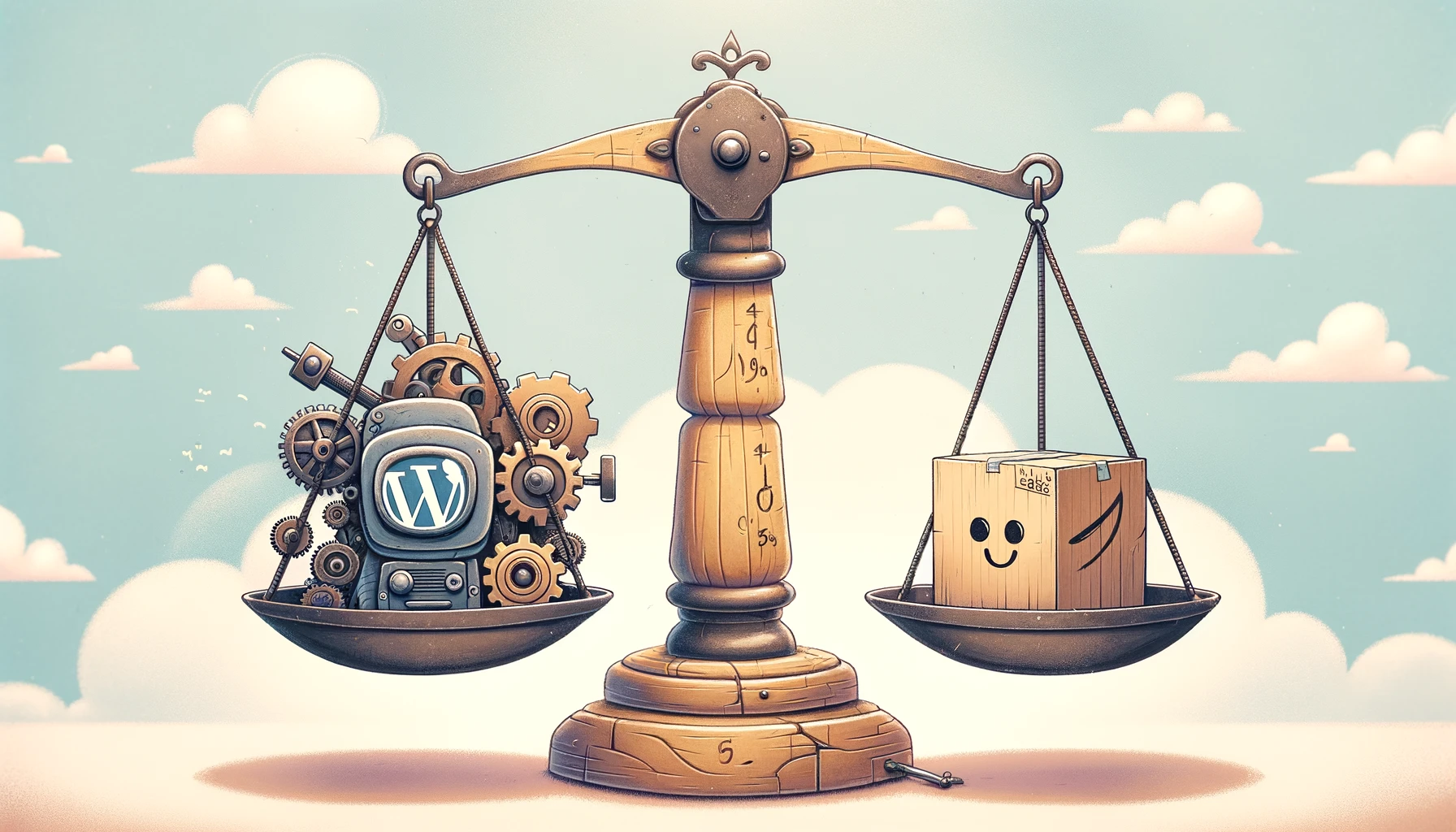In a digital world where every business needs an online presence, the debate between using traditional Content Management Systems like WordPress and Static Site Generators is relevant more than ever. While WordPress powers a significant portion of the web, security vulnerabilities and maintenance burdens often outweigh its benefits.
In contrast, Static Site Generators such as Hugo offer a streamlined approach to establishing a web presence, with notable advantages in security and operational simplicity. In this post, we’ll go over the reasons why we think you consider should a static site for your next business website.
WordPress: A Complex Machine with Many Parts
WordPress is akin to a complex machine with numerous moving parts. Each plugin or theme added to a WordPress site is like adding gears and levers to the machine. The more components there are, the higher the chances of something going wrong. This complexity can lead to several issues:
- Maintenance: Regular updates are required for security and functionality, which can be time-consuming.
- Performance: Complex sites often load more slowly due to the numerous scripts and database queries running.
- Security: More features mean more potential vulnerabilities that can be exploited by attackers.
Static Sites: Simplicity and Reliability
On the other hand, static sites are like simple machines. They have fewer parts, making them less prone to failure. The simplicity of static sites offers distinct advantages:
- Stability: With fewer moving parts, there’s less that can go wrong.
- Speed: Static sites load quickly because they’re just delivering pre-rendered html files without processing server-side scripts to generate markup.
- Security: The attack surface is minimal as there’s no database or dynamic content to exploit.
Choosing the Right Tool for Your Web Presence
While static sites offer simplicity and security, they are not a one-size-fits-all solution. There are legitimate and powerful use cases for WordPress that static sites simply cannot fulfill:
- Dynamic Content: WordPress excels at managing dynamic content and user interactions.
- E-commerce: For online stores with numerous products and dynamic pricing, WordPress plugins like WooCommerce provide robust solutions.
- User-Generated Content: If your site relies on user engagement and content submission, WordPress is a good option.
However, each project is unique, and the decision should not be taken lightly. When deciding between WordPress and a static site, consider the following:
- Functionality Needs: Does your site require complex features or will simple static pages suffice?
- Maintenance Capabilities: Do you have the resources to maintain a WordPress site, or do you prefer the low upkeep of a static site?
- Performance Requirements: Is site speed a critical factor for your audience?
The key is to carefully weigh the pros and cons, considering both your current needs and future growth. If the decision seems daunting, we’re here to help.
Still Unsure? Let’s Talk!
If you’re on the fence about which path to take for your website, contact us. Our team can guide you through the decision-making process, ensuring that you choose the technology that best aligns with your business needs.
